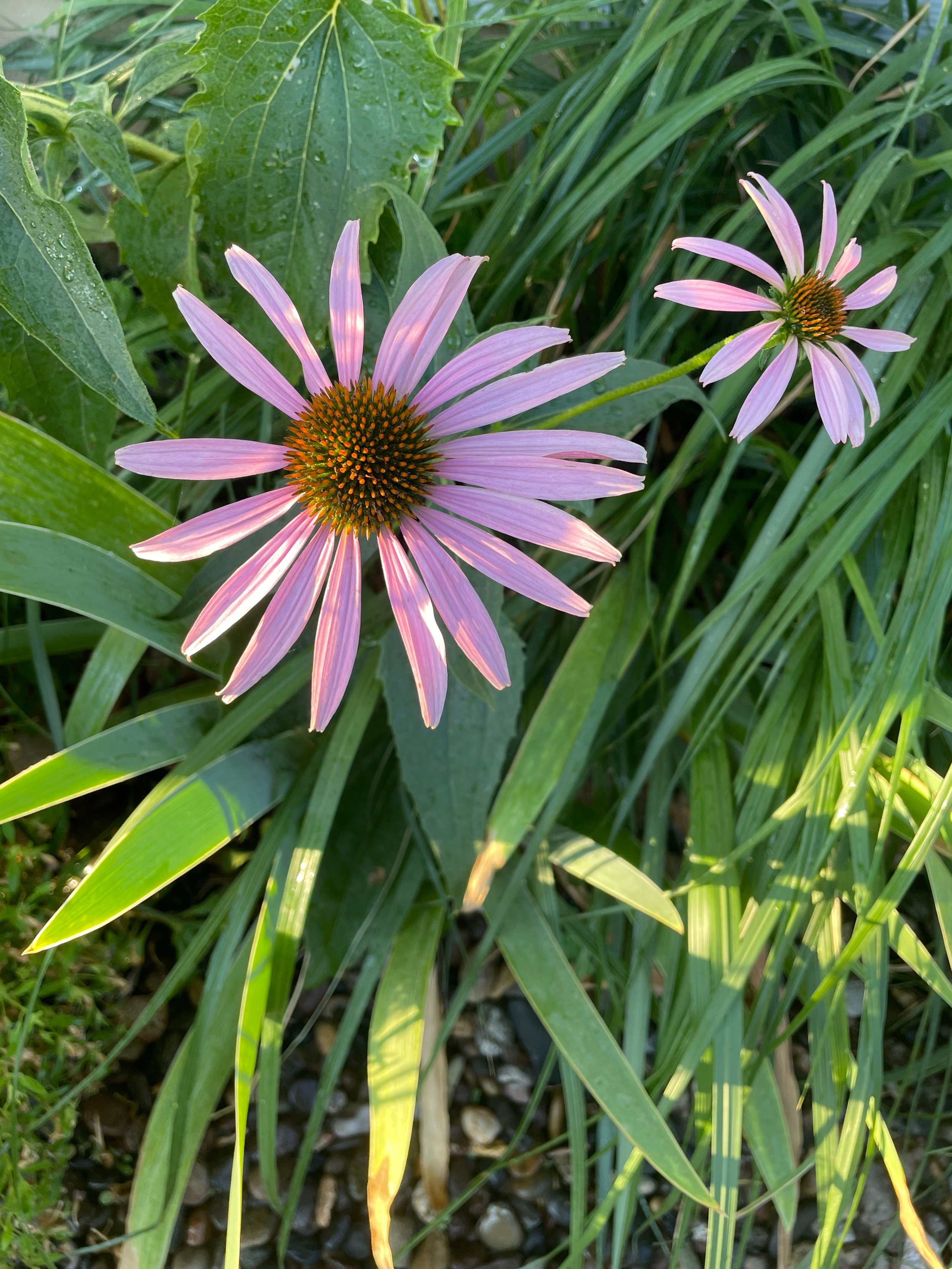coneflowers
Gardening is a lot like cooking. Sometimes you want to putter in the kitchen all day, making breads and soups from scratch and creating the perfect meal. But there are plenty of times when you just want delicious, healthy food on the table quickly. Same thing in the garden.
Spring planting is exciting, and you're happy to spend a few weekends choosing plants and digging in mud. But a few weeks later, you just want to have a nice-looking yard, without a lot of effort. You want pretty flowers and foliage you can cut for an indoor arrangement, and a chance to relax and enjoy your outdoor room. No problem. Simply follow these six steps to choosing plants for an easy-care garden ... just "plant 'em and forget 'em."
Step One - Buy Shrubs
There are dozens of dwarf shrubs that keep a neat appearance, and you won't even need to do more than an occasional pruning. Here are three favorites with year-round foliage color:
Goshiki False Holly has five different colors throughout the year. Dwarf Globe Blue Spruce is a true-blue gem, and for a bright pop of yellow, Sea of Gold Juniper is dazzling. Barberries are a super choice for fascinating foliage colors ranging from yellow to pink and burgundy. The new Crimson Pygmy Dwarf Japanese Barberry is a deep crimson color and cold hardy to zone 4. For evergreen variegated foliage and fragrant blooms, Variegated Winter Daphne is stunning.
Step Two - Opt for Perennials
Ever seen that t-shirt that says, "Friends don't let friends buy annuals"? Because annuals need to be replanted every season, perennials are preferred in the low-maintenance garden. Lily of the Nile is a great choice. Pretty, strappy foliage and a spray of purple or white flowers. Try Midknight Blue(R) for fabulous deep violet-blue color.
Coneflowers are bright, cheery and easy to grow. These colorful natives attract birds and butterflies and make great cut flowers. To add some complementary texture, try ornamental grass. For stunning color, Purple Fountain Grass is a great pick.
Step Three - Go for Easy Edibles
Planning a summer vegetable garden is tempting, but it is a lot of work. Opt instead for a simple herb garden. Rosemary, Thyme, Bay, Lavender and Sage are indeed trouble-free. Or try some easy-to-grow edibles like blueberry shrubs. A few raspberry and blueberry shrubs will produce a bounty of fruit all season. Once established, fruit trees have a long life and reward you with your own organic fruits.
Pomegranates, figs, stone fruits and citrus have great ornamental value, too. Dwarf citrus, like the Meyer Lemon, Nagami Kumquat or the Dancy Tangerine work well in containers, on the patio or indoors. Their fragrant blossoms are a bonus.
Step Four - Think Water-Wise Plants
Especially for your containers - water-wise plants will eliminate countless hours of hand watering. Yucca and Cordyline are gaining favor for their bold, architectural structure, interesting foliage colors and drought tolerance.
Try the super-hardy Golden Sword Yucca with boldly striped green and yellow leaves. Festival Grass Cordyline has glossy, red-burgundy strappy leaves that look amazing contrasted with bright green plants in the garden and containers.
Step Five - Pick Improved Varieties
Monrovia, a California-based producer of container-grown plants, grows plants that are disease- and pest-resistant, heat- or cold-tolerant, or have a natural tidy habit that requires less pruning. Winter Gem Boxwood is one of the hardiest Boxwood varieties. It takes on a pretty golden hue in the winter and then turns bright green in spring. If you love roses, try the super-simple
Knock Out shrub roses and Flower Carpet groundcover roses - they don't need dead-heading and they produce nonstop color for up to 10 months.
Step Six - Soil and Mulch
Start your plants off in good soil and mulch them with organic materials. Not only will your plants be super-healthy and beautiful without much effort, the mulch will block out most of the weeds.
